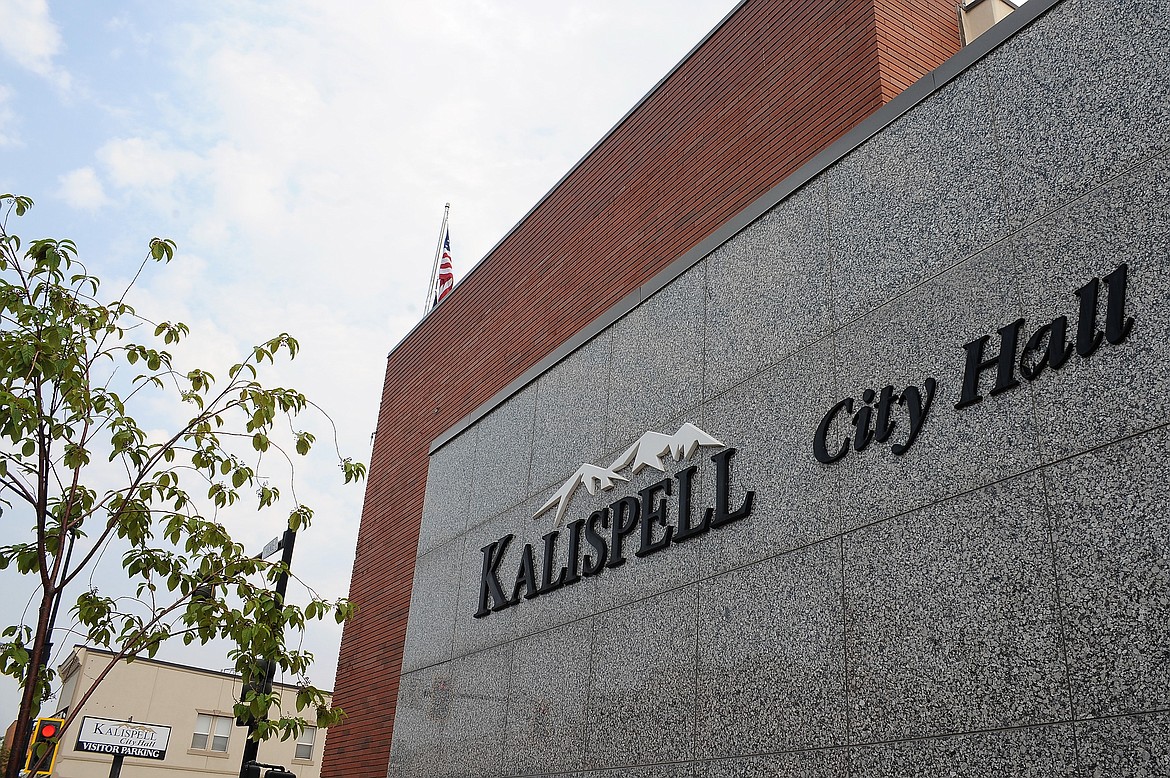City recreational amenity requirements discussion turns to affordable housing
A City Council work session on Kalispell’s recreational amenities requirements for multi-family developments Monday turned into a discussion about how those requirements affect housing costs.
Councilor Ryan Hunter said he sees requirements for recreational amenities as a potential barrier to constructing housing.
“Where’s the flexibility for one building versus multiple buildings,” he said. “Maybe we reduce the requirement for infill development.”
Currently, multi-family dwellings with five or more units must provide either land, recreational amenities based on the fair market value of the property or pay a fee-in-lieu of the aforementioned options. The city is looking at making changes to where the funds for the fee could be spent and how the fair market value of the land is determined.
But Council worried that homeowners and tenants end up bearing the cost.
Councilor Sid Daoud said regulation adds cost, which in turn a developer passes along to owners or renters. He said there should be a difference between what is required for amenities in a development adjacent to a city park and one where there’s no city park close by.
“We are requiring that these developers do certain things to go and do the project,” he said. “Doing every one of these things actually pumps up the price of the rental or the buyers in the future.”
“We have to ensure that we’re doing our job to make sure we’re setting policy that assists in providing housing for all income levels,” Daoud added.
Councilor Jed Fisher, who is a former parks director for Flathead County, pointed out that a development providing recreational amenities is a benefit for the residents, but also to the city that then doesn’t have to maintain those facilities.
“While I understand the importance of affordable housing,” he said, “I also understand the value of recreation amenities.”
Based on comments that areas already home to parks might not need a recreational component for developments, City Manager Doug Russell pointed out that there needs to be equity amongst developments in terms of what the city requires.
Development Services Director Jarod Nygren also noted that requiring amenities is key to creating quality housing where people want to live.
UNDER CITY regulations, multi-family dwellings with five or more units must provide either 500 square feet of land per unit with recreational value for the residents; or recreational amenities equivalent to the fair market value of 500 square feet of undeveloped land per unit; or equivalent funds to the city to develop neighborhood facilities in the immediate vicinity.
The city is considering updates to the multi-family requirements that would allow officials to split the funds between maintenance and the development of neighborhood facilities in the immediate vicinity. Currently, funds must be used for the development of neighborhood facilities.
In addition, a change would further define how the fair market value of land for recreational amenities gets calculated. Fair market value could be demonstrated by an appraisal reported through a state-licensed appraiser within one date of the building permit application or through the sale of the property being developed within one year of the building permit application.
Nygren said the changes are aimed at making sure there is equity between what different projects pay in particular based on the fair market value of the land.
“We have seen on projects where the land value isn’t coming in the same,” he said. “We want to make sure each project is treated equally. If you’re a developer who has owned your property for 20 years or 30 years then you probably think your property has a different market value than somebody who just bought the land in the last year and is doing a project.”
The amendments are expected to go before the Planning Board before returning to Council for a decision.
COUNCIL ALSO discussed a request for a grant application from Morning Star Community, Inc., which is working on plans to connect to the city’s sewer infrastructure. Council agreed to place the item on an upcoming meeting for a formal vote.
Morning Star Community is a resident-owned manufactured home facility on South Woodland Drive that includes 41 homes.
NeighborWorks Montana, on behalf of the neighborhood, is asking the city to submit a Department of Natural Resources Renewable Resources Grant Loan Program Grant and Montana Coal Endowment Program Grant application to build the required infrastructure to connect to the city sewer system.
Danielle Maiden, with NeighborWorks Montana, said the community has been resident-owned since 2017 and the lot rent since then has been maintained at $350 per month. The monthly rent is considerably under the market rate, which is about $500, she said.
“They have a really nice community,” she told Council. “This is a really great affordable community for these folks, the City of Kalispell and Flathead County.”
The community has 21 septic and drain field systems that were installed in 1973 that are at the end of their useful lifetime, according to a letter the community submitted to the city.
These grants are available only through Montana municipalities and counties, so the community organization needs to go through the city in order to secure the grant.
Development Services Director Jarod Nygren said the community must be annexed in order for the city to provide wastewater service. The community would pay for the infrastructure needed to connect to city sewer, he noted.
“The city would act as the sponsor of the grant and function as a pass-through,” he said.
Features Editor Heidi Desch may be reached at 758-4421 or hdesch@dailyinterlake.com.


